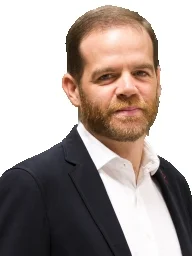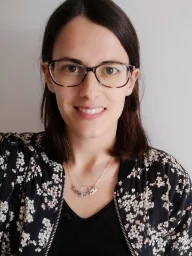Esade creates a new observatory to examine the social challenges of housing
The Esade Institute of Social Innovation has established the Decent Housing Observatory with a view to analyzing and raising awareness of the social issues involved in housing, from a social, international and inter-sectoral standpoint. The aim is to generate, share and disseminate knowledge about this area, while fostering social debate, reflection and learning.
The director of the Esade Institute for Social Innovation, Ignasi Martí, together with Susanna Salvador, will be in charge of promoting and developing this observatory. They will also have an advisory council to offer guidance and plot the roadmap for decent housing. As Martí said, “This project, covering a subject matter pioneered by Esade, includes the creation of a space for reflection and dialogue with the different actors and sectors involved in this field and will help students, citizens and organizations from different sectors address the social challenges of housing.”
The issue of decent housing
Decent housing, recognized as a fundamental right by the Universal Declaration of Human Rights, is still a global problem that affects more than 20% of the world's population according to the UN. More than 1.8 billion people do not have decent housing and live in precarious conditions that jeopardize their lives, health and emotional well-being. A few more precise figures to highlight this precariousness: according to UNICEF, “in Denmark, France, Spain, the United Kingdom, Hungary and Portugal, more than 1 in 5 children are exposed to dampness and mold.” Meanwhile, in 2020, Eurostat declared that 14.8% of European families lived in homes with leaks, rising damp or mold; 17.4% lived in overcrowded homes; and 7.5% were unable to keep their home at an adequate temperature.
The survey covers not only the physical condition and location of housing, but also its impact on families, communities and social relationships – factors that determine citizens’ present and future. As Martí explains, “this means regarding housing not only as a shelter but also as a home because it affects overall health and social integration, and is crucial for restoring a person’s dignity and sense of belonging.”
Homes are crucial for providing opportunities and are part of the WHO definition of health, which includes physical, mental and social dimensions. The importance of keeping and assuring a home, feeling at home (particularly for people previously unable to access housing) helps regain dignity and a sense of being oneself. In this respect, as Martí says, “decent, adequate housing does not in itself guarantee social integration, but is essential for it. In fact, there is a close link between inadequate housing and social exclusion.”
A platform for discussion
The “Decent Housing Forum” will be an annual event to bring foremost agents and organizations in this ecosystem together. The forum will be a platform for discussion, sharing ideas and concepts about the area under study from different standpoints. The conclusions reached during the Forum will be incorporated into the annual study to be published at the end of the year. This year’s main subject will be the identification and description of the tangible and intangible elements which the Spanish deem to be characteristic of decent housing.
Advisory Board of the Decent Housing Observatory
The observatory will have a multi-disciplinary advisory board designed to address the housing issue from different standpoints that enrich each other. The board members are José Manuel Caballol, HogarSí; Joan Canimas, Universitat de Girona; Jesús Leal Maldonado, Universidad Complutense de Madrid; Albert Sales, Universitat Pompeu Fabra; Carlota Sáez de Tejada, Institut de Salut Global; Paula Rivas, Green Building Council; Sonia Lacalle, Cáritas Barcelona; Susanna Roig, Taula del Tercer Sector; Javier Burón, Nasuvinsa; Ismael Blanco, IGOP-Universitat Autònoma de Barcelona; Pau Pérez de Acha, Sareb, and Omar Rachedi, Sergio Llebaría and Jordi Nin, Esade.
The observatory also receives support from Fotocasa, Leroy Merlin and Neinor Homes, companies committed to the observatory’s mission and aims and who make a crucial contribution to advancing its vision and mission. “The participation of these companies reflects a mutual interest in fostering decent housing conditions and improving citizens’ quality of life: values in keeping with their corporate social responsibility”, underlined Martí.




